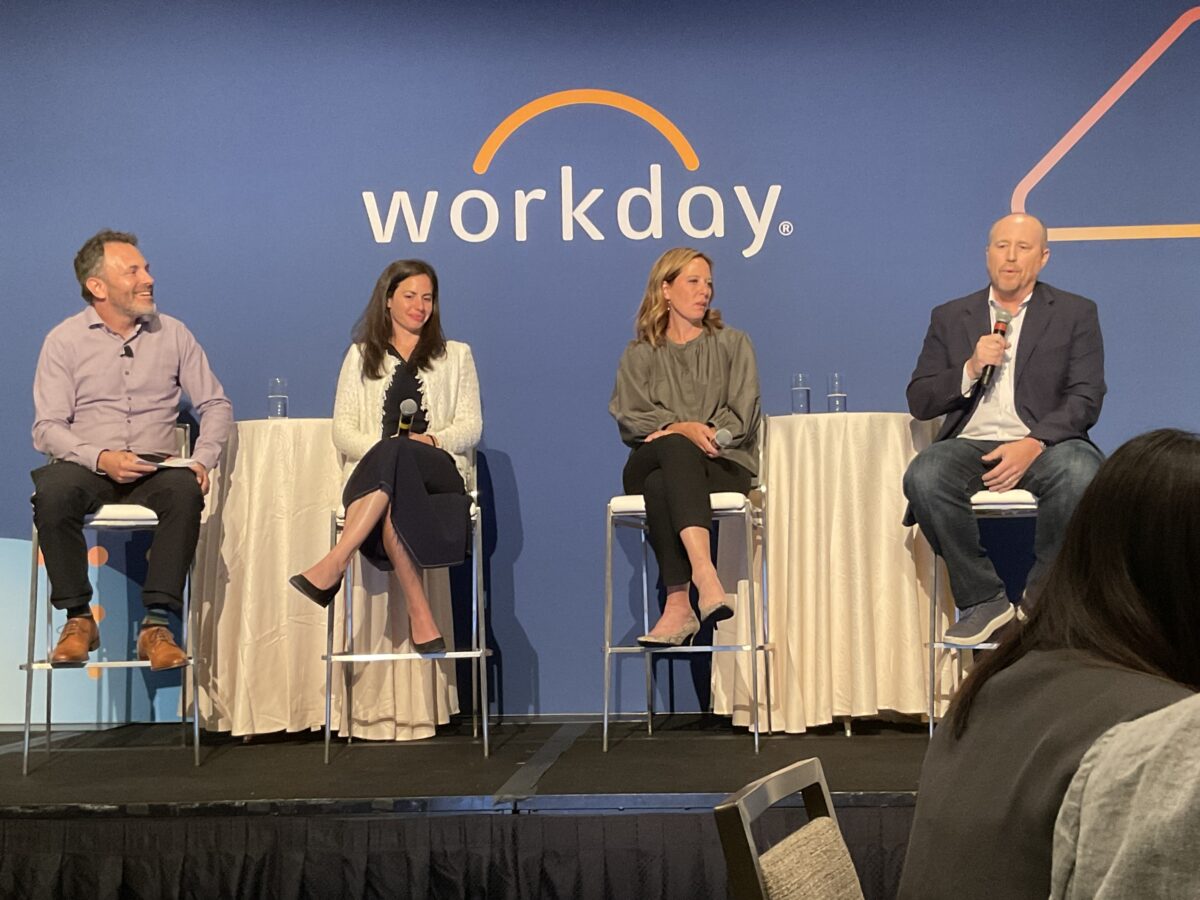
Workday Rising is officially in full swing, offering hundreds of expert-led sessions, hands-on experiences, industry-specific solutions, and peer networking opportunities to get everyone inspired.
In a panel discussion yesterday, industry leaders came together to explore the evolving role of AI in business, particularly in human capital management.
The panel included:
- Josh Lannin, Vice President Of Productivity Technologies at Workday
- Athena Karp, CEO & Founder at HiredScore
- Kerry Gumm, HR Executive at Allstate
- Stephen Chase, Vice Chair, Artificial Intelligence & Digital Innovation at KPMG
As AI continues to gain momentum, organizations are focusing not only on technology investments but also on the tangible business outcomes these innovations can bring.
A Strong Business Case for AI
The conversation highlighted the growing need for a solid business case when it comes to AI investments. Workday’s survey revealed that 77% of companies plan to boost their AI spending next year, with 89% expecting major improvements in efficiency, especially in recruiting. Athena Karp, founder of HiredScore, highlighted how her company is using AI to tackle challenges around fairness, experience, and efficiency in hiring processes.
Expanding AI’s Role Beyond Recruiting
While recruiting has been a primary focus for AI implementation, panelists pointed to broader opportunities.
AI can be leveraged for strategic workforce planning, succession management, and empowering managers with insights to lead more effectively. Kerry Gumm from Allstate shared examples of how they’re using AI to help employees understand their skills, discover new career paths, and equip managers with better tools for performance feedback.
Key Challenges: Transparency and Augmentation, Not Replacement
Transparency and data privacy are known as some of the biggest challenges when deploying AI.
All panelists agreed that AI should support, not replace, human decision-making. Stephen Chase from KPMG stated, “We strongly believe that people with AI, enabled with AI, will outperform those without it.”
Predictions: The Future of AI in Business
Looking ahead, the panelists predicted that AI will become seamlessly integrated into enterprise systems.
The rise of “agent-based” AI, which assists employees in their day-to-day tasks, was a common theme. Josh Lannin from Workday noted, “There’s never been a period where so many companies have been thinking about rewiring work all at the same time.”
Balancing Strategic AI Investments with Cost Pressures
As businesses navigate the pressure to reduce costs while still making strategic AI investments, there was agreement that long-term value should be prioritized.
Organizations are starting to see operational use cases for AI in industries like insurance, supply chain management, and field services, though the immediate ROI may not always be evident.
The key takeaway: AI is a long-term strategic play that, when implemented with clarity and purpose, can offer significant benefits down the road.
AI’s Transformative Power, If Managed Correctly
The panel highlighted that while AI offers transformative potential, its success hinges on transparency, a human-centered approach, and the ability to demonstrate value through real-world use cases. Companies that focus on augmenting human skills and ensuring responsible AI implementation will be the ones that benefit most from this technology in the long run.
For businesses planning to invest in AI, the message was clear: start with a strong business case, prioritize transparency, and be prepared for a future where AI is a fully integrated part of the workforce.

